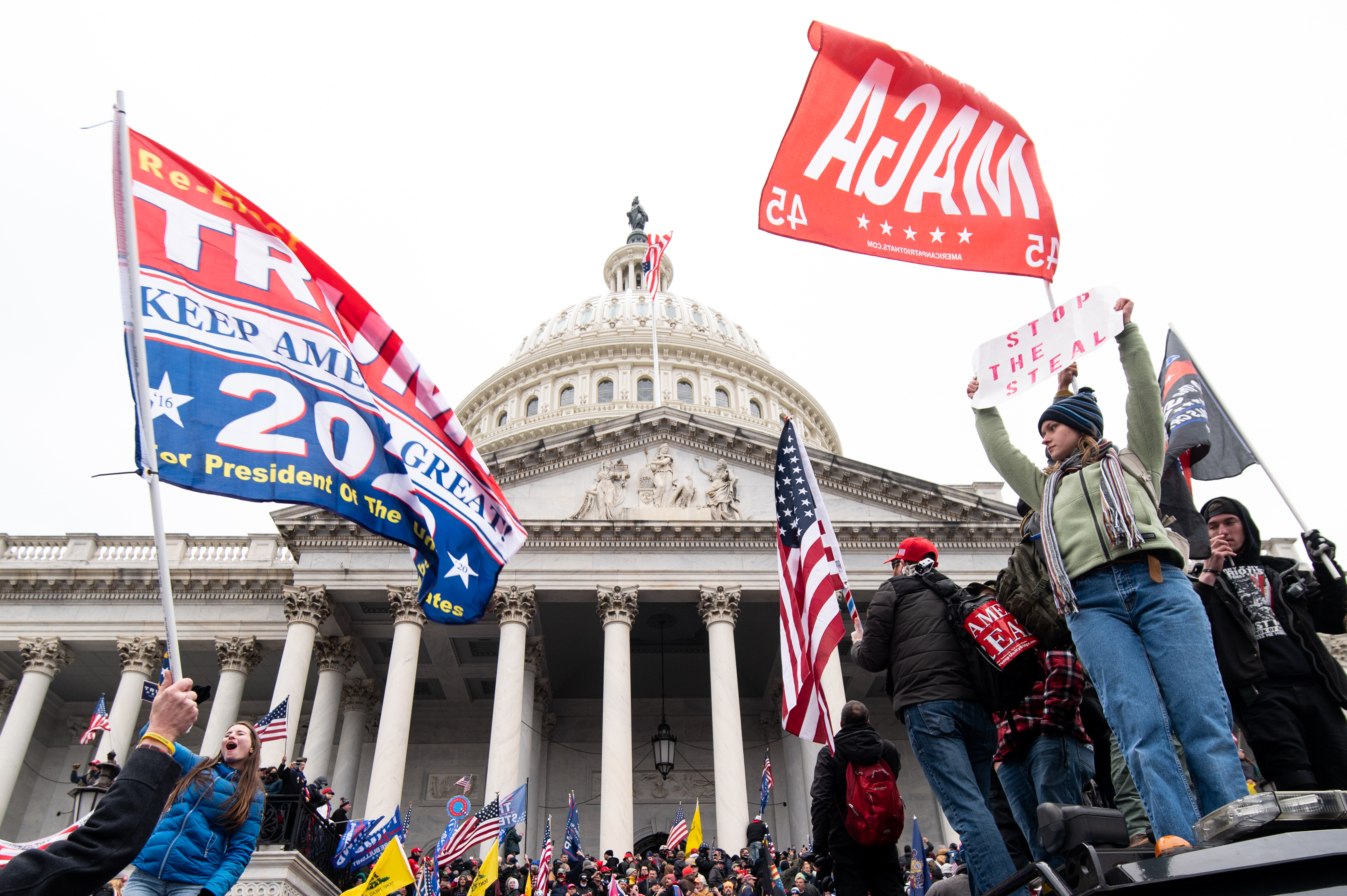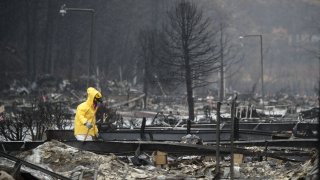
Ken Baker was expecting a check to arrive in the mail at his new house — part of a settlement after his Paradise, California, home burned in the 2018 Camp Fire.
But that check won’t reach its destination.
“The address it’s supposed to go to is no longer,” Baker said.
In a painful deja vu, the new house burned in the Park Fire on July 25. Some of Baker’s family members watched their Ring camera feed until flames extinguished it.
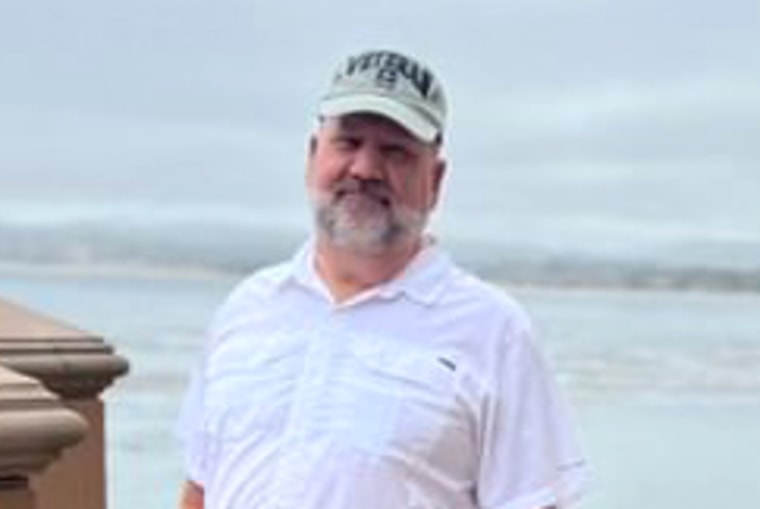
Baker and his wife, Sylvia, had settled in Cohasset, a rural community with a scattering of houses along winding forest roads about 5 miles from Paradise. Now, they are staying in his son’s spare bedroom back in Paradise, contemplating how to rebuild for the second time in six years.“Daunting,” he said, identifying with the Greek legend of Sisyphus. “Rolling it up the hill and watching it roll back down again.”
The Park Fire is the fourth-largest in California’s history, and Baker is not the only person who lost a second house to it. Three other Camp Fire victims told NBC News similar stories of back-to-back losses.
U.S. & World
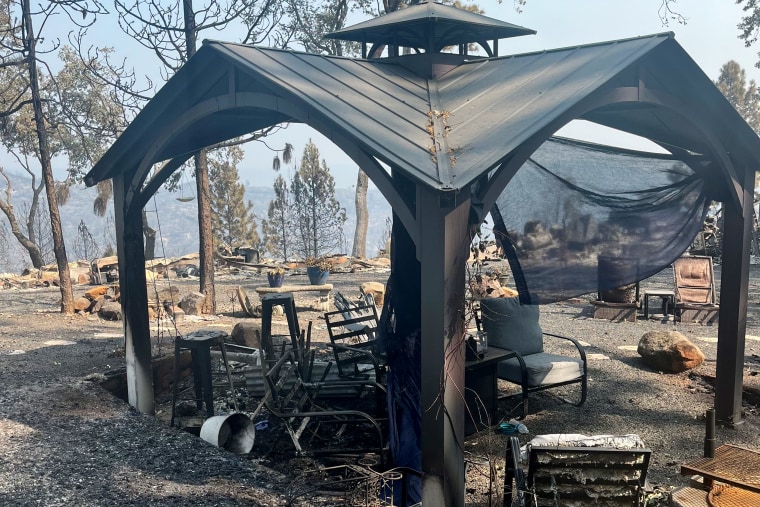
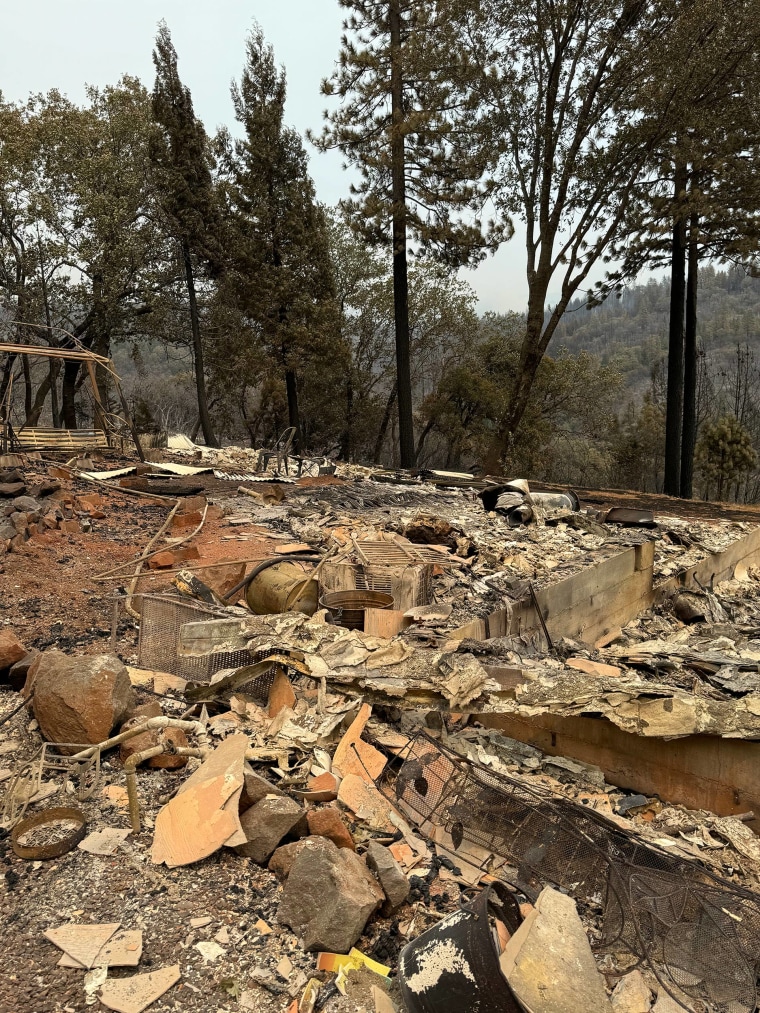
Feeling out of the loop? We'll catch you up on the Chicago news you need to know. Sign up for the weekly> Chicago Catch-Up newsletter.
“We had our peace. We had our spot,” said Michael Daneau, adding that he and his wife, Kristy, had finally started to feel fully settled in Cohasset. “It’s gone once again. There’s no way in this moment to fathom how we’re going to recover from this, except staying positive and keeping with our family and group of friends.”The families’ stories show how risky and challenging it can be for those whose lives are rooted in fire-prone parts of California, as destructive blazes become more extreme and frequent because of climate change and forest management issues.
They also demonstrate the way these losses can be compounding and cyclical: Several families said their displacement in the Camp Fire thrust them into a hard-luck housing market with little choice but to settle again in a wildfire-prone community. Others poured effort into hardening their new homes against wildfire, but it wasn’t enough.
The Camp Fire burned for weeks in November 2018, killing 85 people and destroying more than 13,500 homes.
Rick Pero narrowly survived with his wife, Lisa Stone. The two tried to get out as quickly as possible, but their skittish cat, CatMandu, was zooming around their Paradise home.
“It was eight minutes we did not have,” Pero said.
The couple soon found themselves in the car with CatMandu, surrounded by flames, in a group of about 20 other vehicles — some with melting side panels. A fire truck used a water cannon and hydrant to douse the group.
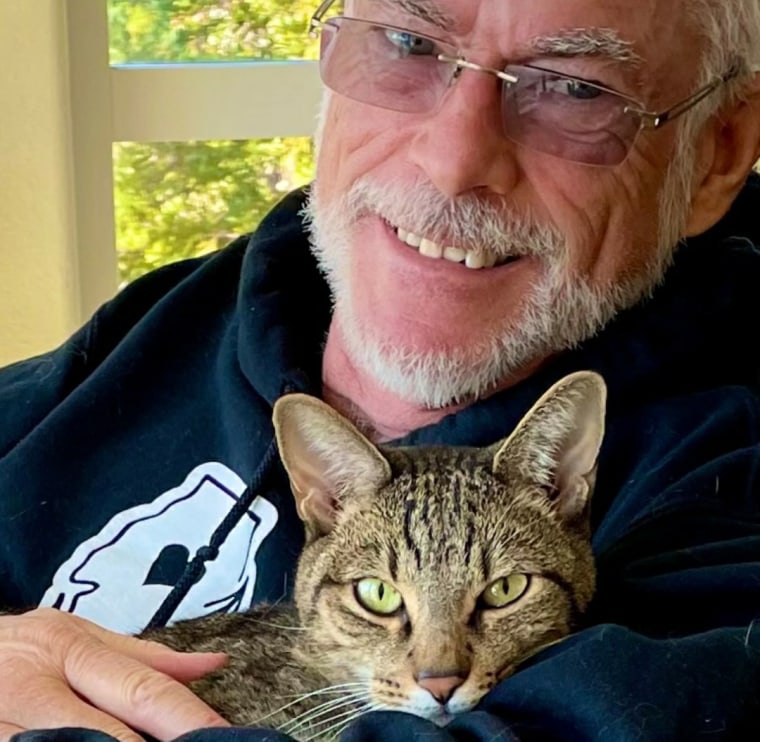
“Transformers and propane tanks were exploding. Houses were burning all around us,” Pero said.Eventually, they made their way to a grocery store parking lot, then caravanned out when conditions improved.
About a year later, Pero, now 70, and Stone settled in a subdivision called Forest Ranch, just east of Cohasset. He became the head of the neighborhood’s wildfire mitigation committee.
Each year, he brought in hundreds of goats to chew a fire break around the neighborhood. Pero chopped down bushes — “ladder fuels” — created a 40-foot buffer of “defensible space” around his property and built a fire road for truck access.
“We had this wonderful, incredible view — 365 days a year — the sunset. That was such a gift,” Pero said.
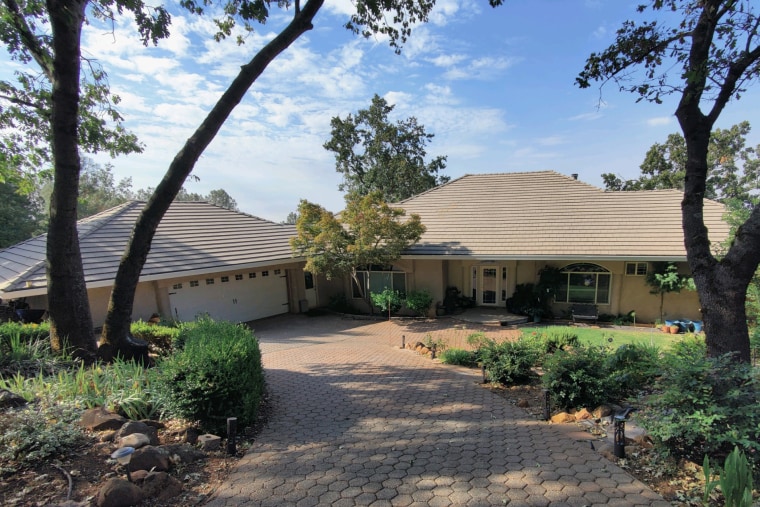
As the Park Fire erupted, he was in Mexico. His cat sitter was unable to corral CatMandu when the evacuation order came.Pero later visited his property, which burned to the ground, and found CatMandu’s remains in his usual hiding place — under the red TV chair. Pero buried his treasured pet near the house, one of only three that burned in the neighborhood of 28 homes.
“We miss the loving cat, the cuddle-up in our arms,” Pero said, choking up. “I would kind of sing to him when he ate.”
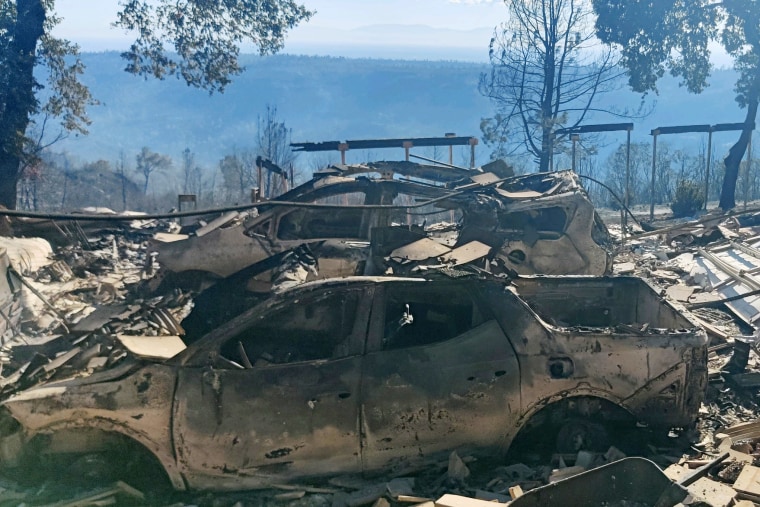
The Daneau family — Michael, Kristy and their four daughters — were scattered around Paradise when the Camp Fire evacuation notice came, and they fled separately with friends, family or strangers. Michael frantically took their calls.
At one point, he lost contact with Kristy, who had stayed at an elementary school to make sure students with disabilities got to safety; when their phones reconnected, Michael remained on the line as Kristy drove through flames.
When they finally found each other, Daneau said they shared a moment of realization: “Now we’re homeless.”
The Daneaus and their four dogs spent three weeks in a hotel, then two months in a fifth-wheel RV in a parking lot near the airport in Chico, California. The roof leaked.
“Tension was high to say the least,” Daneau said.
The couple secured a fire insurance payment and put offers on a dozen homes, but lost out. With tens of thousands of people displaced after the fire, survivors were left scrambling to find housing.
“That’s what led us to Cohasset,” Daneau said. “We said absolutely not, we’re not going to move into a fire zone. We weren’t forced into it, but our only other option was staying in a fifth wheel.”
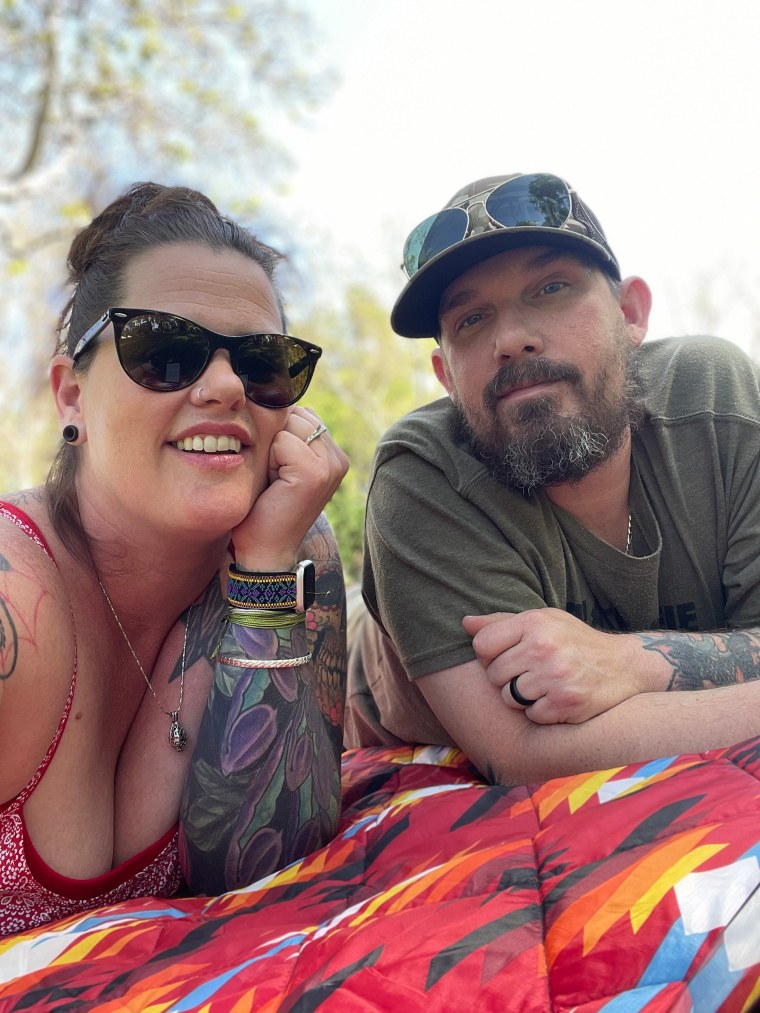
In Cohasset, a man put his home up for sale with specific conditions: The buyer had to be a family that survived the Camp Fire.“Everything was rainy and beautiful and green. The cedar trees were vibrant. You could smell the pines,” Daneau said. “My wife fell in love.”
The seller gave them the house for $10,000 less than their offer.
The Park Fire started when a man pushed a burning car into a gully in a Chico city park on July 24, authorities say. That afternoon, temperatures climbed to 106 degrees Fahrenheit. The car ignited vegetation, and the blaze grew to more than 70,000 acres in roughly 24 hours.
The fire reached parts of Cohasset that evening.
Michael and Kristy Daneau left with their youngest daughter, now 17, and joined a convoy of cars that became mired in confusion without consistent cell reception.
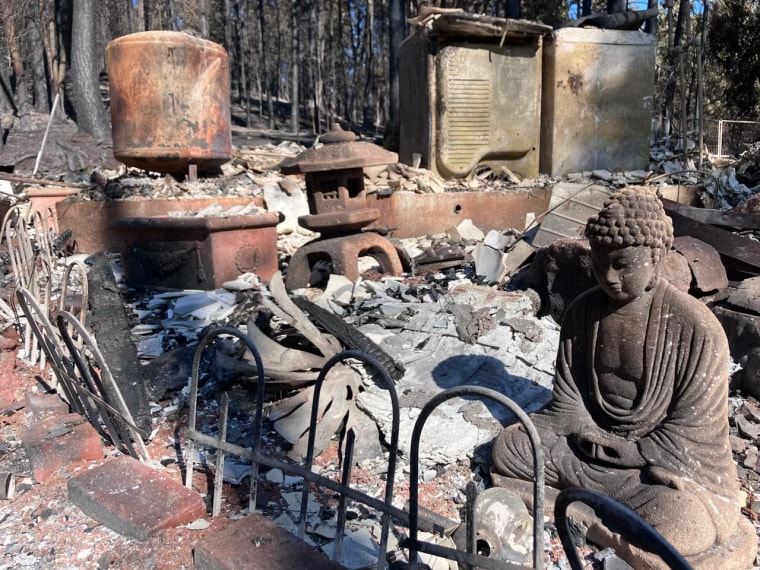
“People were blindly leading and following each other” down a maze of logging roads, Daneau said. It took them seven hours to get to Chico, typically a 20-minute drive on their normal route.
Daneau, Baker and Pero were part of the settlement with Pacific Gas & Electric Co., whose utility lines started the Camp Fire. Each said they have still received only a few relatively small payments and are frustrated by the process.
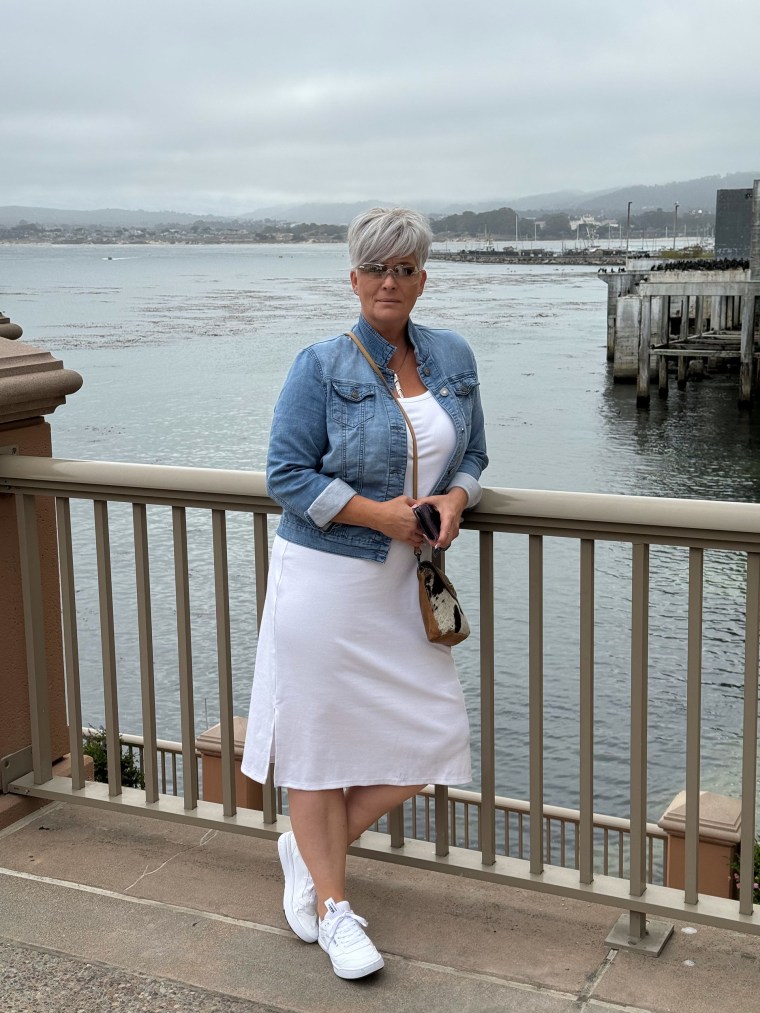
Baker, 59, is an Iraq War veteran who works for the Department of Veterans Affairs in Chico. During the Camp Fire, he said, “the only reason I got out was because I grew up in this area and knew the shortcuts and back roads.”He intended to rebuild in Paradise, but “all the building materials and available contractors, everything started going up exponentially in price,” he said. So he and his wife, Sylvia, bought a “transition home” in Cohasset.
When the Park Fire got close, he had a second narrow escape through the flames.
Now two-time wildfire victims, these families know what’s ahead.
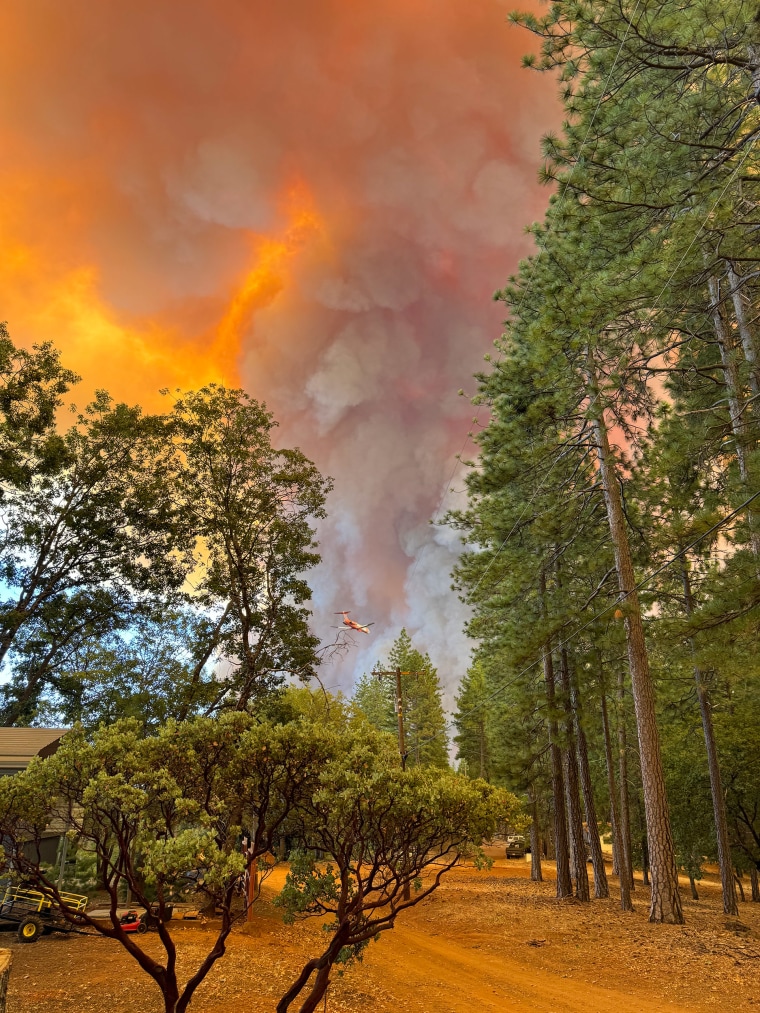
“You’ve lost everything. You’ve got nothing. You’ve already gotten over that mentally once. When you have to do that a second time, you kind of know what to expect,” said Alex Wood, 26, who also lost homes in both the Camp and Park fires.The 2018 fire destroyed all of Wood’s possessions when he was just 21. He spent months sleeping either in his ’99 GMC Sonoma or on friends’ couches. Eventually, a family friend offered him a rental in Cohasset — a building the Park Fire decimated last month.
Wood bought a trailer that he plans to tow to the burned property. He hopes to purchase it and build anew.
If it weren’t for his family and his workplace, Wood said, “I don’t think I’d stay in California.”
Pero and his wife are considering their options now, including moving away.
“We’re thinking with drought and global warming and the water issues in California, we’re just kind of concerned with what’s California going to look like,” he said.
Pero’s house was insured, but the Daneaus gave up their insurance when the costs got too high. Insuring their Cohasset house cost about $7,000 the first year, then around $10,000 the next, Daneau said. When the quote jumped to $12,000, “it became unobtainable.”
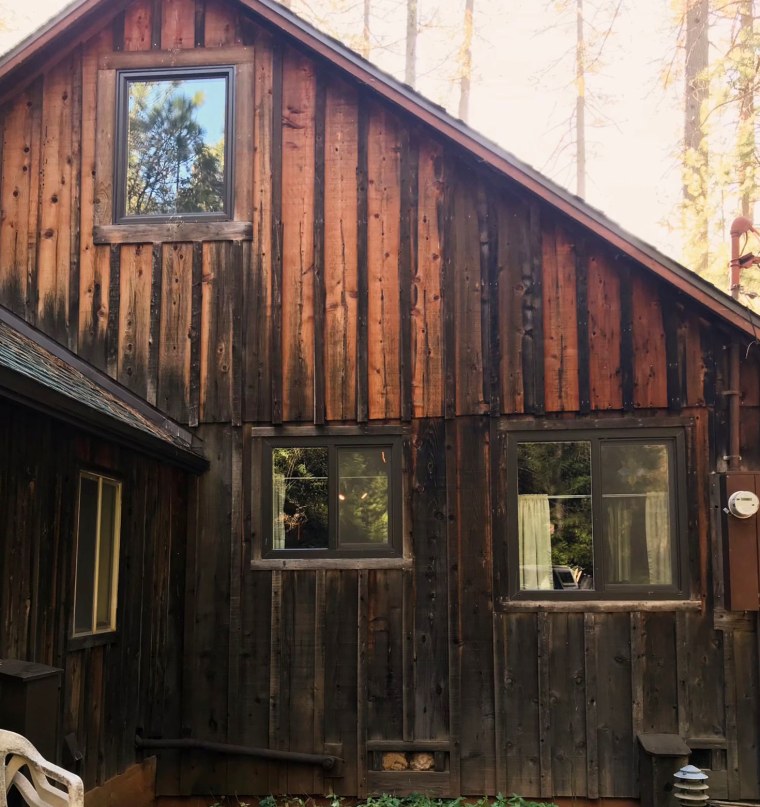
The couple are staying with Daneau’s father and don’t know what’s next. They’d like to live near the coast but won’t leave their children, who have all settled nearby.Their main priority is “getting away from fires,” Daneau said. “Even if it means living in a city, we’ll damn well do it. We can’t put ourselves in this position again.”
For Baker, generations of family remain in the Paradise area and he doesn’t want to leave. He is negotiating with a developer to purchase a new home there.
He views the risk as lower now because so many trees have burned and the landscape has become more suburban. The city has new water systems and the houses are built to modern fire codes and with a sprinkler system.
Baker said he’s been grateful for an outpouring of community support.
“It’s humbling to consider yourself a self-made man, and sit on the side of the street with no home and no property that two hours ago you had,” he said. “You have to reassess and redirect your efforts and prioritize and continue on with your mission — and of course the mission is living.”
Steve Patterson contributed.
This story first appeared on NBCNews.com. More from NBC News:

